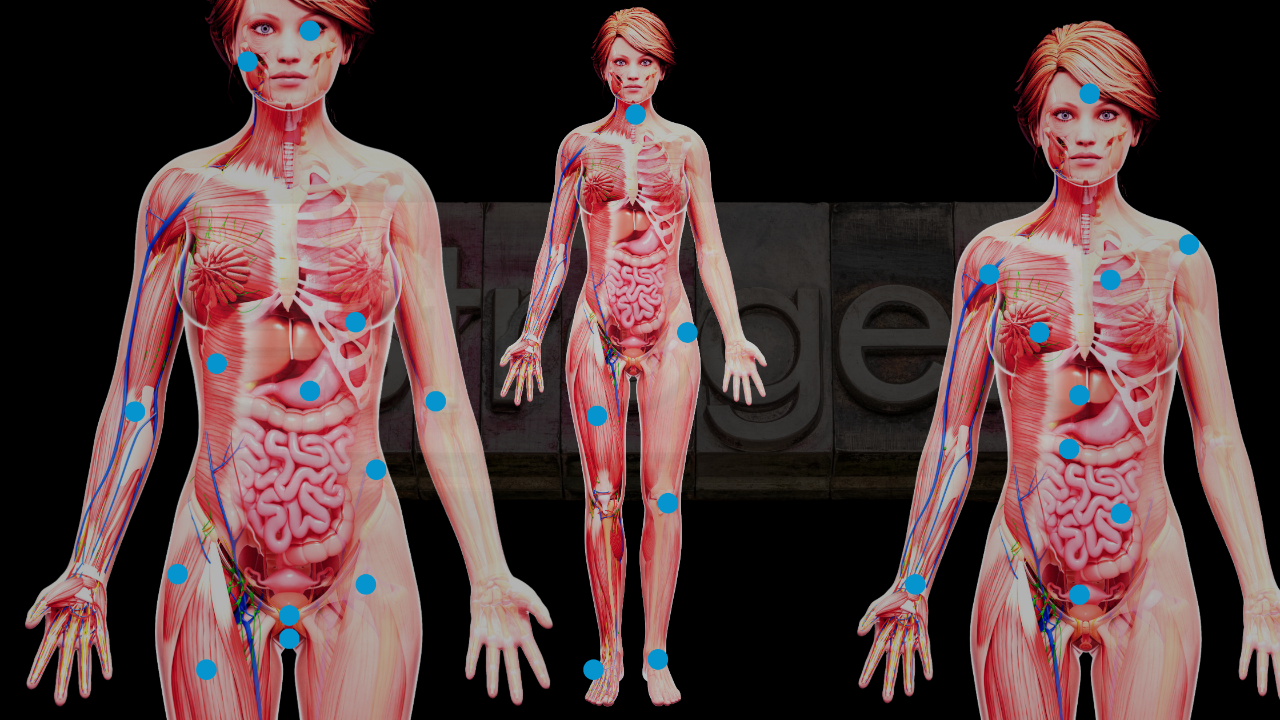
Understanding Estrogen’s Impact Across the Body: What Every Woman Should Know
When you hear the word estrogen, what comes to mind?
For most women, it’s periods, pregnancy, or menopause. But here’s the truth: estrogen isn’t just a “female hormone.” It’s a system-wide regulator that influences over 400 functions across your entire body.
In fact, estrogen has receptors in nearly every major organ system—your brain, bones, heart, gut, muscles, eyes, and even your mouth. That’s why when estrogen begins to decline during perimenopause and post-menopause, symptoms can feel confusing, disconnected, or even alarming. Brain fog, dry eyes, joint pain, bloating, anxiety, low libido... sound familiar?
In this article, we’ll explore 9 major ways estrogen affects your body—and what you need to know to feel empowered and informed through every hormonal transition.
Estrogen isn’t just one hormone—it’s a group that includes estradiol, estriol, and estrone, with estradiol being the most active form during your reproductive years. Estrogen is produced primarily in your ovaries, but also by fat cells and your adrenal glands—especially after menopause.
Estrogen’s job? To regulate everything from mood, metabolism, and muscle to bone density, skin elasticity, digestion, and immunity. That’s why it’s often referred to as a whole-body hormone.
-
Brain & Mood Regulation
Estrogen plays a huge role in supporting your mental clarity, memory, and mood. It helps regulate the production of key neurotransmitters like serotonin and dopamine—the feel-good chemicals that affect motivation, focus, and emotional resilience. When estrogen drops, women often experience brain fog, forgetfulness, irritability, and even anxiety or depression. It’s not just in your head—it’s your brain chemistry shifting.
-
Heart Health
Estrogen has protective effects on your cardiovascular system. It helps keep blood vessels flexible, reduces inflammation, and supports healthy cholesterol balance. After menopause, as estrogen declines, your risk of heart disease increases. It’s one of the most important—and least discussed—reasons to stay proactive with your heart health.
-
Bone Density & Joint Health
Estrogen is a key player in maintaining bone strength. It helps regulate calcium absorption and slows the natural breakdown of bone tissue. After menopause, the risk of osteoporosis and fractures goes up significantly. Many women also notice joint pain or stiffness—another subtle signal that estrogen is decreasing.
-
Muscle Mass & Metabolism
Estrogen helps with muscle protein synthesis, meaning it supports the building and maintenance of lean muscle mass. It also has a hand in fat distribution and how efficiently your body burns fuel. That stubborn belly fat that appears in your 40s and 50s? Often tied to a drop in estrogen and muscle mass. The best antidote? Strength training and metabolic support.
-
Skin, Hair & Collagen
Estrogen promotes collagen production, skin hydration, and scalp health. It’s what gives your skin its youthful bounce and glow. With lower estrogen, you may notice dry skin, hair thinning, reduced elasticity, and an increase in fine lines or wrinkles. These cosmetic changes are often one of the first signs that hormone levels are shifting.
-
Gut & Digestion
Your gut contains estrogen receptors, too. Estrogen supports a healthy gut lining, a balanced microbiome, and even regular bowel movements. A drop in estrogen can contribute to bloating, gas, irregular digestion, and food sensitivities. Supporting gut health is also crucial for hormone detoxification.
-
Immune System & Inflammation
Estrogen has an anti-inflammatory effect and helps regulate your immune response. It’s particularly protective when it comes to autoimmune disease risk. As estrogen wanes, inflammation can rise, and autoimmune symptoms may flare or worsen. This makes nervous system regulation and an anti-inflammatory lifestyle even more essential.
-
Vaginal, Bladder & Sexual Health
Estrogen maintains the health of your vaginal tissue, bladder, and pelvic floor. It supports tissue elasticity, moisture, and circulation. Lower estrogen levels can lead to vaginal dryness, discomfort during intimacy, urinary incontinence, and more frequent UTIs. These are common symptoms—but not something you have to silently tolerate. Solutions exist.
-
Vision & Oral Health
This one surprises most women: estrogen also impacts your eyes and mouth. It helps regulate tear production and maintains gum tissue and saliva flow. Estrogen decline can cause dry eyes, blurry vision, and even changes to your eyeglass prescription. You might also notice bleeding gums, dry mouth, or sensitivity—early signs of hormonal change that often go unrecognized.
If you’ve been experiencing symptoms that feel scattered or confusing—this could be why. Estrogen doesn’t just influence reproductive health; it’s a foundational hormone for whole-body vitality. The good news? Once you understand how estrogen works, you can take clear, strategic action to support your body through perimenopause, menopause, and beyond.
Whether it’s through hormone-supportive nutrition, muscle-building workouts, nervous system regulation, or stress reduction—there are tools to help you feel like yourself again.
If this article gave you clarity, imagine having a full roadmap.
Inside The Energized Lifestyle Membership, we teach menopausal women how to regulate their hormones naturally, reset metabolism, build muscle, reduce inflammation, and finally feel energized again.
Ready to learn more? Click here to explore the membership.
Share this post with a friend who needs to hear this. You never know who’s struggling silently with symptoms they’ve been told are just aging.
Knowledge is power—and it starts with us.
